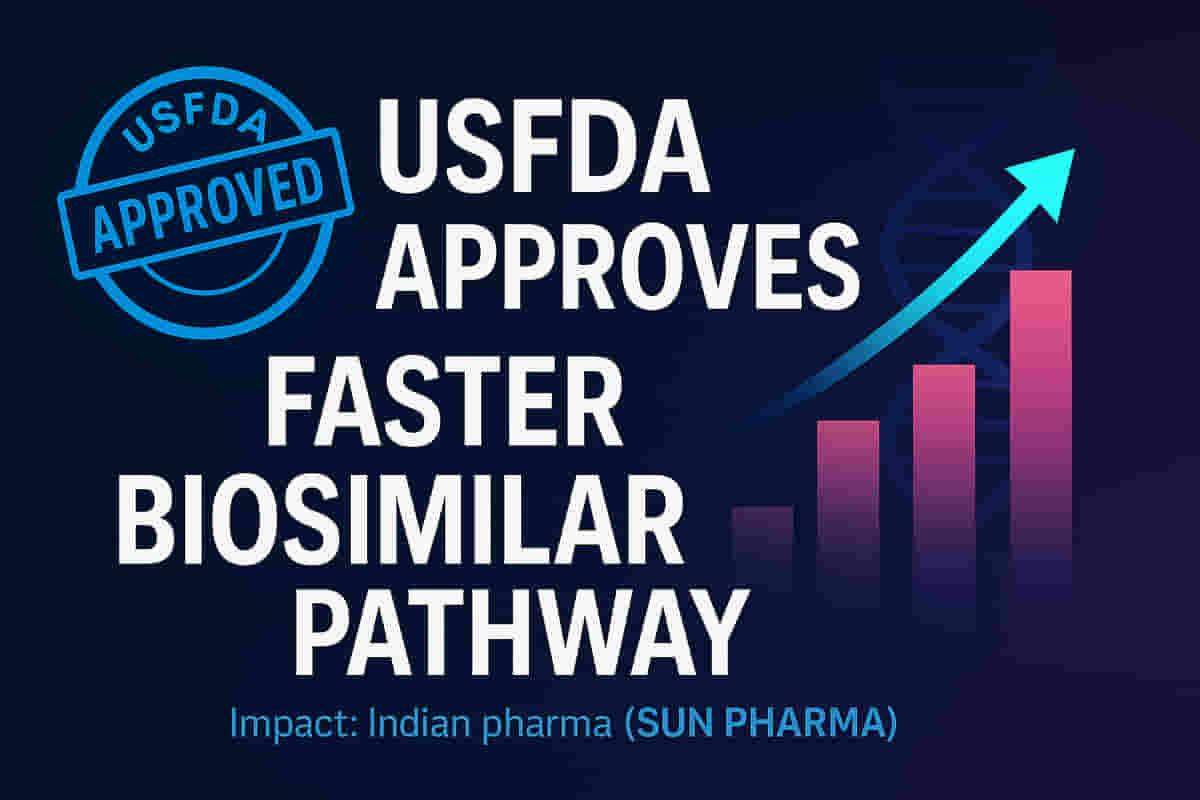USFDA proposes faster, cheaper pathway for biosimilar drugs, benefiting Indian pharma
Healthcare/Biotech
|
30th October 2025, 3:18 AM

▶
Stocks Mentioned :
Short Description :
Detailed Coverage :
The United States Food and Drug Administration (USFDA) has put forth new draft guidelines aimed at streamlining the process for developing and approving biosimilar drugs. The primary objective of this initiative is to foster biosimilars as a more cost-effective alternative to expensive biologic medications, making them accessible faster and at a lower cost. This regulatory shift is expected to be highly beneficial for major Indian drug manufacturers, including Biocon Limited, Dr. Reddy's Laboratories Limited, Lupin Limited, and Sun Pharmaceutical Industries Limited, all of whom have a considerable presence in the US biosimilars market.
The draft regulations propose to reduce the necessity for expensive and often low-yield comparative efficacy studies. Instead, the USFDA allows for greater reliance on advanced analytical testing and may lessen the burden of large, costly clinical trials. Furthermore, the draft guidelines recommend dropping the requirement for 'Switching studies' for interchangeable biosimilars. Biologics, despite representing only 5% of US prescriptions, accounted for 51% of total drug spending in 2024. Although 76 biosimilars have been approved by the USFDA, their market share remains below 20%. This move could significantly boost the development and adoption of biosimilars.
Impact This development is highly positive for Indian pharmaceutical companies involved in biosimilar production, potentially increasing their market share and revenue from the lucrative US market. The reduced development hurdles could lead to faster product launches and improved profitability. Rating: 9/10
Difficult Terms: Biosimilar: A biological product that is highly similar to an already approved biological product, referring to the reference product, with no clinically meaningful differences in safety, purity, and potency. They are typically cheaper alternatives to biologics. Biologics: Therapeutic products derived from living organisms, such as proteins, antibodies, or vaccines. They are often complex and expensive to develop and manufacture. Comparative efficacy studies: Clinical trials designed to demonstrate that a biosimilar performs similarly to the reference biologic in terms of its therapeutic effect. Analytical testing: Laboratory tests that examine the physical, chemical, and biological properties of a drug to assess its quality and consistency. Switching studies: Clinical studies conducted to evaluate the safety and efficacy of switching patients between a reference biologic and its biosimilar, often required for interchangeable biosimilars.